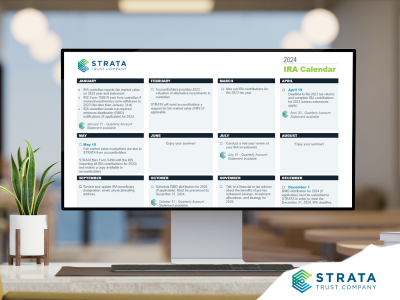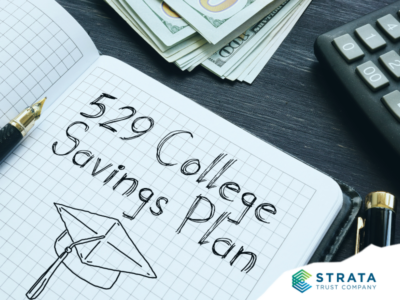In recent years, artificial intelligence (AI) has permeated nearly every aspect of our lives, promising convenience, efficiency, and innovation. From composing texts to aiding in financial decisions, AI has become an indispensable tool. However, beneath its promising facade lies a shadowy realm where unsuspecting investors fall prey to fraudulent schemes, exploiting the allure of AI for personal gain.
 The Case of Maxpread Technologies
The Case of Maxpread Technologies
In 2022, Maxpread Technologies emerged as a beacon of promise, offering substantial returns through its purported AI crypto trading platform. With claims of sustainable profits and the charismatic presence of CEO Michael Vanes, Maxpread seemed destined for success. Yet, behind the veil of sophistication lurked deception and deceit. By 2023, investigations by regulatory bodies unveiled a web of lies – from unregistered investments to a computer-generated CEO. Maxpread’s collapse left investors reeling, highlighting the dangers of unchecked AI-driven ventures.
 Recognizing the Red Flags
Recognizing the Red Flags
Amidst the proliferation of AI-powered investment opportunities, discerning legitimate ventures from fraudulent schemes is paramount. Four major red flags – questionable services, lack of regulation, transparency, and unrealistic expectations – serve as cautionary beacons for wary investors. These warning signs, epitomized by Maxpread Technologies, underscore the need for vigilance in navigating the AI investment landscape.
In an effort to combat the rising incidences of financial fraud, several regulatory entities have jointly written an article with practical suggestions. The Securities and Exchange Commission (SEC), the North American Securities Administrators Association (NASAA), and the Financial Industry Regulatory Authority (FINRA) have recently published Artificial Intelligence (AI) and Investment Fraud. Let’s look at three common areas of AI fraud that all investors should be aware of.
1. Unregistered or Unlicensed Investment Providers Advertising AI Expertise
AI can help financial professionals examine market trends, analyze detailed data from innumerable companies, and even anticipate individual behaviors. But claims to guarantee certain stock returns or to always win against benchmarks should be met with a healthy dose of skepticism. Dealing with a registered investment professional ensures that you are working with someone who is bound by high ethical standards and there is clear recourse if this standard is violated. Unlicensed investment providers may be quite qualified, but you should carefully vet them before making any commitments. Because SDIRAs have access to so many alternative investments, it is even more important to know exactly who you are dealing with.
2. Investing in Companies That Focus on AI
You may be tempted to invest in a company that seems to be a leader in developing or implementing AI technology. While it is true that new technologies and innovative deployment can present worthwhile investment opportunities, fraudsters can capitalize on our inclination to be on the ground floor of a potentially hot investment. Unfortunately, these bad actors can manipulate this tendency by making inflated claims about the need to invest now, while the upside is so ready to seize. These scammers often use high-pressure tactics to compel investors to take immediate action.
The article linked above warns that such investments may often be in the form of micro-cap or nano-cap stocks, which are typically traded on over-the-counter (OTC) markets rather than on major stock exchanges. This can make these stocks more susceptible to market manipulation and volatility. In fact, sometimes market manipulation is the business model for unscrupulous investment promoters. They “pump up” the stock price of a company “by spreading positive, but false, information, usually online through ads, fake news coverage, or social media promotions.” Once the stock price is up, they liquidate their shares—and leave other investors with (usually) worthless stock.
Keep in mind that micro- and nano-cap securities can be sound investments. But when they are promoted with high-pressure sales efforts, dubious claims of quick profits, or celebrity endorsements, this should trigger additional diligence by investors.
3. AI Algorithms and Investment Predictions
While AI techniques are hardly new to the world of stock picking, Machine Learning (ML) and Deep Learning (DL) are garnering increasing attention in the investment space. The future of data-based decisions is bright and scammers are betting your hard-earned savings on it. Scammers are using buzzworthy terms like “AI” to entice investors. Absolutely nothing is wrong with data-backed decisions—just ensure that you can confirm the authenticity of the underlying sources. The Department of Financial Protection and Innovation overviews some common AI investment scams and tips on how to protect yourself.
Vigilance Empowers Investors
In the evolving landscape of AI-driven investment decisions, vigilance is the ultimate safeguard against exploitation. Despite the nefarious tactics employed by fraudsters, investors can arm themselves with knowledge and diligence. Resources provided by regulatory bodies offer practical guidance for safeguarding investments and detecting potential scams. By remaining informed, exercising due diligence, and heeding warning signs, investors can shield themselves from the perils of AI-driven investment fraud.
STRATA is committed to fostering initiatives aimed at empowering investors with knowledge to safeguard their retirement savings. As an SDIRA custodian under the oversight of the Texas Department of Banking, STRATA maintains rigorous adherence to regulatory protocols. However, STRATA has a limited role as it relates to evaluating any investment. It is the accountholder’s responsibility to complete a thorough due diligence check covering both the investment and investment sponsor. Explore our website page Protect Yourself for comprehensive resources designed to aid you in conducting due diligence – before investing.









